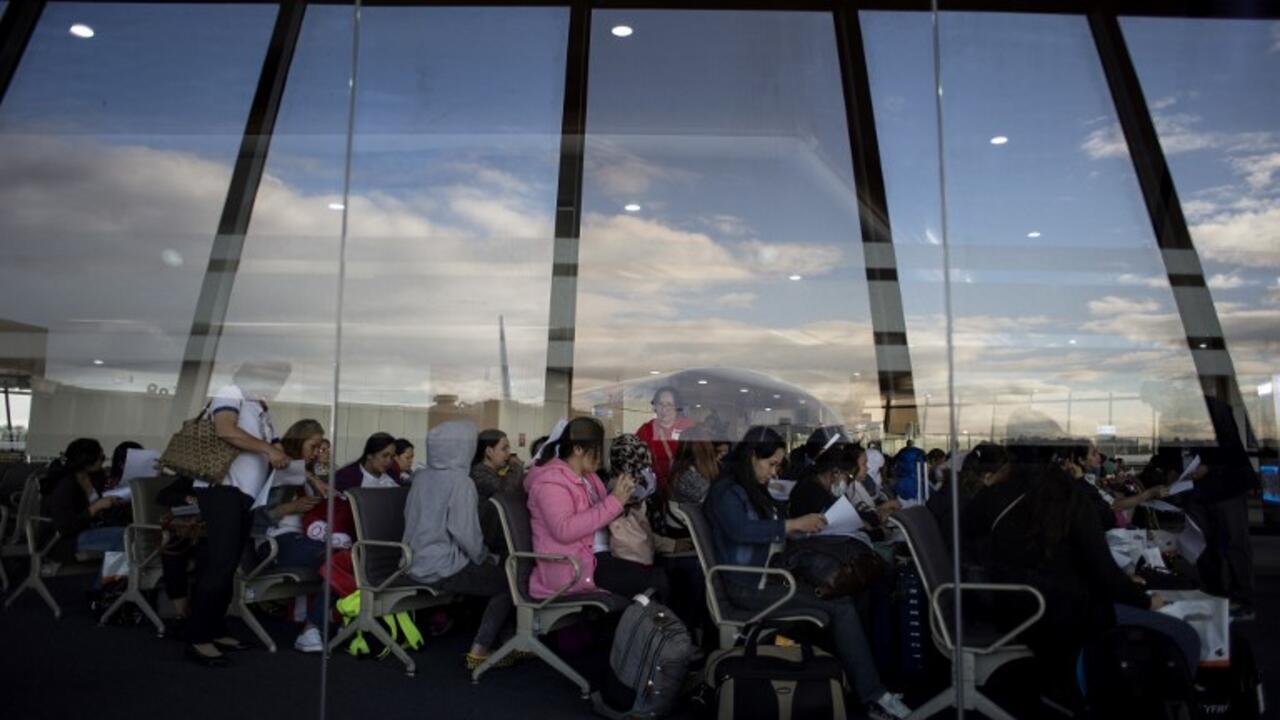Kuwait wants to reduce dependence on foreign workers
Text by: Nicolas Keraudren Follow
In Kuwait, 70% of the population is foreign. For several weeks, the officials of the Gulf monarchy have therefore multiplied the announcements calling for the "Kuwaitisation" of jobs. Because the country's economy, highly dependent on oil revenues, is severely affected by the consequences of the Covid-19 pandemic. This policy does not work well with residents.
Publicity
Read moreFrom our regional correspondent,
The Covid-19 crisis could redraw the demographic characteristics of Kuwait. In a country where there are 3.4 million foreigners among 4.8 million inhabitants, officials have in fact called in recent weeks to reduce the share of foreign labor in public and private employment.
Reduce the share of foreign workers in employment
Last month, parliamentarians - who are preparing for a legislative election before the end of the year - for example, introduced a bill to establish quotas for the recruitment of foreigners. Parliamentarians also later called for a freeze on public sector hires. At the end of May, the airline Kuwait Airways announced the dismissal of around 1,500 expatriate employees, or 25% of its foreign staff. Finally, the Minister of Petroleum announced at the beginning of June that no expatriate would be recruited in the sector for which he is responsible for the year 2020-2021.
These announcements were then punctuated by the words of Sheikh Sabah al-Khalid al-Sabah. In an interview with the local press, the Prime Minister of Kuwait set himself the objective of reducing the share of expatriates in the country by 40%. “ We are faced with a challenge to restore the [demographic] balance (…). We are responsible for all those who live on this earth (…), especially in the face of the current situation ”, he had justified.
" At this point, this is a guideline proposed by the Prime Minister of Kuwait, " said Geoffrey Martin, a Canadian-based economic analyst based in Kuwait. Over time, however, this strategy could be successful " even if it will be very painful, especially for nationals who will face rising commodity prices, reduced subsidies and rising cost of life ”, continues the analyst.
An economy shaken by the consequences of Covid-19
In Kuwait, the debate around the presence of foreigners in the country is not new. At the mercy of crises, it returns to the table. But it resurfaced even more with the Covid-19 pandemic and its economic consequences. As a result, 92,000 expatriates have already left the country in the past three months, according to the director of operations at the Directorate General of Civil Aviation, Mansour Al Hashim. " No government would want to be in this position or adopt such a political debate without a serious reason ," analyzes Geoffrey Martin.
" The global recession is expected to reduce government oil revenues in the near future ," said the economist. However, Kuwait is very dependent on them. The National Bank of Kuwait has also estimated that the country's budget deficit could reach 40% of gross domestic product this year, the worst level since the Gulf War. " 80% of small and medium-sized businesses in the country could also disappear, " says Geoffrey Martin. It is in this sense that "austerity and economic restructuring is a necessity" and " the reduction of the number of expatriates in Kuwait is one of the many political options currently under consideration to deal with the economic damage in the short and long term ”, concludes the analyst.
But it tempers nonetheless. " If such a policy is adopted, its implementation will take many years and will be a long and slow process ."
Foreigners feel stigmatized
This trend, common to all the Arab monarchies of the Gulf, had all the same effects on the population. Actress Hayat al-Fahad, one of the most famous personalities in the region, spoke out in a telephone interview broadcast on the TV channel ATV last April, in favor of the expulsion of expatriates. " Put them in the desert " , she had revolted, while implying that immigrant workers were behind the spread of Covid-19 in the country.
A video broadcast by an English-language daily in Kuwait also sparked outrage among residents of the country. She spoke of the " chaos created by expatriates during the distribution of food aid ".
Video 1: Expats create chaos during distribution of food aid in Hawally area pic.twitter.com/taWoYWwBrT
ARAB TIMES - KUWAIT (@arabtimeskuwait) June 14, 2020Faced with these comments, many citizens and residents of Kuwait have therefore expressed their misunderstanding on social media. Like this surfer: “ I never considered myself an expatriate in Kuwait. But with each passing day, I feel more and more unwanted. I was born and raised here. My father is buried here. While I used to tell everyone that it's great to grow up here, now I'm worried about my son's education here. It hurts. "
Newsletter Receive all international news directly in your mailbox
I subscribeFollow all international news by downloading the RFI application
google-play-badge_FR- Kuwait
- Immigration
- International Migration
- Employment and Work
- our selection

